
Boost your memory with food
If we lose our keys, we think we’re losing our marbles. But in fact, everyone experiences forgetfulness from time to time. It’s a normal side effect of stress, distractions, multitasking and, yes, getting older. Serious memory lapses could be a sign of dementia, but plain old forgetfulness isn’t usually something to fret about.
What you can do is reach for more “brain foods”-foods rich in protective nutrients, such as antioxidants, B vitamins, anti-inflammatory oils and spices.
If you’re looking for more ways to boost your brain, give your mind a workout with free and interactive games like Sudoku at besthealthmag.ca/games.
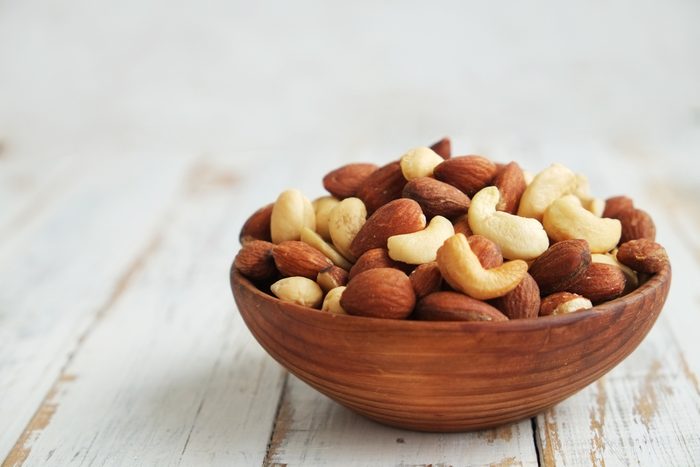
Nuts, fruits and vegetables
Brain cells called neurons are particularly vulnerable to oxidation by free radicals. Thee rogue molecules attack cells much like oxygen “attacks” a freshly cut apple, turning it brown and “aging” it prematurely. Antioxidants, found in abundance in most fruits and vegetables and in nuts and beans, neutralize free radicals. When you eat enough of these foods, your brain collects antioxidants, and this offers protection to various parts of the brain, including the hippocampus, a region that’s key to forming and retaining memories.
You can get your fill of three particularly important memory-aiding antioxidants-vitamins C and E and the mineral selenium-by filling your plate with fruits, vegetables and nuts.
Try our Crunchy Nut Coleslaw as a side dish or starter for your next meal and our Dried Fruit Compote for breakfast or dessert.
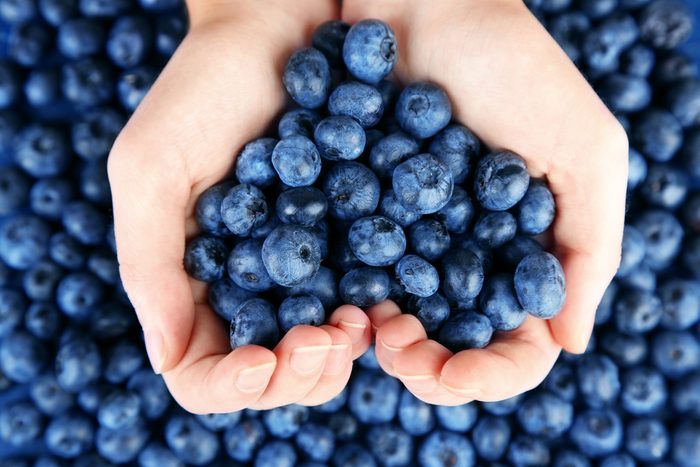
Blueberries
When summer rolls around, there’s nothing like fresh blueberries. But here’s a reason to stock your freezer and eat them all year long: a better memory. The sweet blue globes are powerhouses of phytochemicals called anthocyanins-the compounds that give berries their hue, act as strong antioxidants, and may, according to studies, enhance memory.
Try our delicious Blueberry Popovers with Berry Salad for a delightful brunch or scrumptious dessert.

Salmon and mackerel
The brain contains tremendous amounts of fats, so it comes as no surprise that healthy fats in the diet benefit your “think tank.” Brain cells are lines with omega-3 fatty acids that help reduce inflammation. Researchers have noted that high blood levels of omega-3 fatty acids are associated with preserved brain function.
Try our Poached Salmon Steaks with Horseradish and Chive Sauce or Tomato-Roasted Mackerel for your fill of omega-3s.
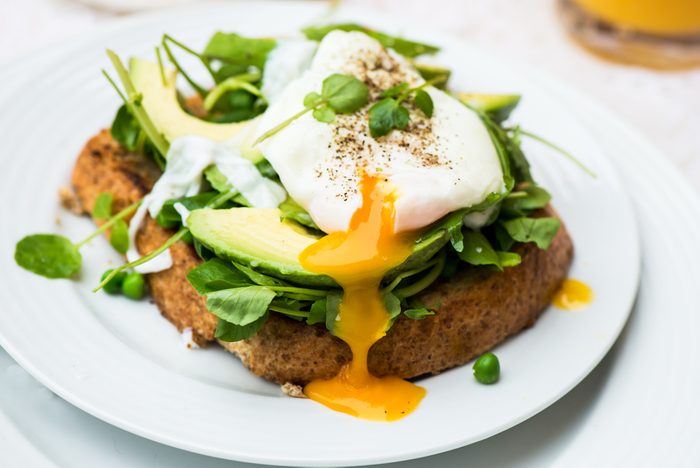
Eggs
One of the few foods known to contain choline, the vitamin-like compound that cells need to function properly, eggs are particularly important in the diets of pregnant women while their babies’ brains are developing. Choline appears to be crucial to the development of the hippocampus, the memory centre of the brain. Egg yolks also contain lots of vitamin B12, which is known to help lower homocysteine, which is toxic to the brain and linked to poor brain performance.
Try our Frittata Florentine any time of the day for a fabulously filling but light meal.

Apples
Could a daily apple in your lunch bag help sharpen your memory skills? It’s possible, especially if you eat the skin, where most of the apple’s quercetin is stored. In at least one study, this antioxidant proved more effective than vitamin C at protecting brain cells from oxidative damage.
Try our Apple Sprout Salad for lunch or as a dinner appetizer.
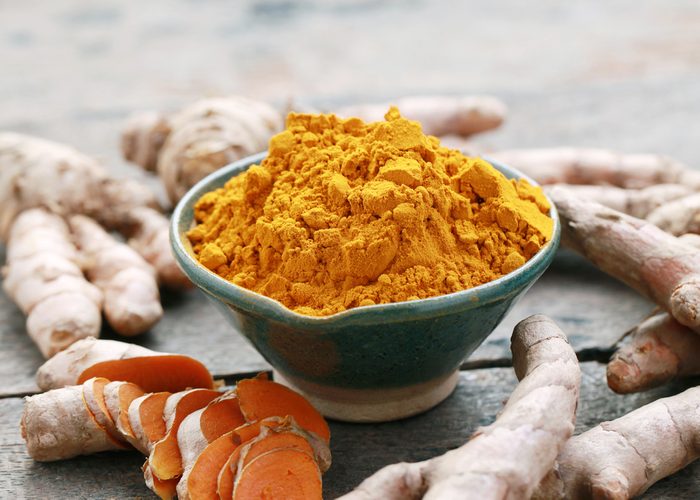
Tumeric
The bright yellow spice called turmeric, used in traditional Indian curries and other dishes, gets its lovely hue from an antioxidant compound called curcumin. Animal studies have shown that curcumin helps prevent the formation of amyloid, the gummy protein buildup that can clog neural pathways in the brain. Curcumin also helps prevent oxidation and inflammation.
Try our Keema Curry for a touch of turmeric.
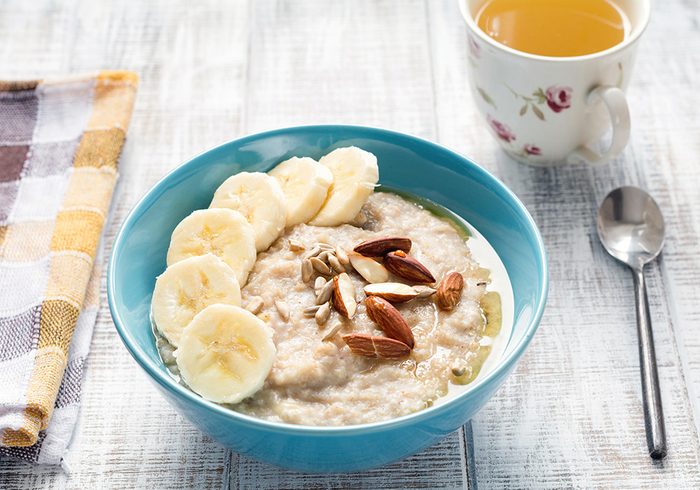
Oatmeal, high-fibre, whole grains
Where memory is concerned, the best breakfast cereal may be good, old-fashioned oatmeal. Scientists suspect that it may be the high fibre and protein content of oatmeal and whole-grain cereals that helps slow digestion, releasing glucose (blood sugar) more gradually into the bloodstream. The brain uses glucose as a source of energy, and a steady flow appears to help the brain retain information for tasks that require memory skills.
Try our Fresh Fruit Muesli to start off your day.
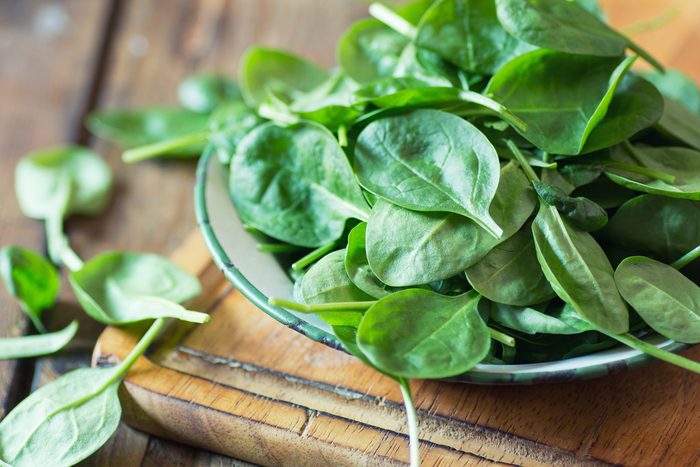
Leafy greens and lentils
Folate (also known as folic acid) and vitamins B6 and B12 help lower levels of homocysteine, an amino acid in blood that has been linked to an increased risk of dementia. High levels usually signify a deficiency of B vitamins. One study showed that people with high homocysteine levels and low folate levels had difficulty remembering words and details from a short story.
Try our Fish with Spicy Green Lentils or Millet with Spinach and Pine Nuts.
